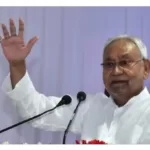Nepal’s political landscape has been stirred by the recent visit of Indian Prime Minister Narendra Modi to Gunji, a location near Kalapani in Uttarakhand. Opposition parties in Nepal have raised objections, claiming that Modi entered what they perceive as Nepalese territory without prior notification to local authorities. They question the legitimacy of his visit.
Prominent Nepalese parliamentarians, including Thakur Prasad Gaire of the primary opposition Communist Party of Nepal-Unified Marxist Leninist, Rabi Lamichhane of Rastriya Swatantra Party, and Dipak Bahadur Singh of Rastriya Prajatantra Party, have vocally asserted that Gunji, situated in Kalapani, is indeed Nepal’s territory. They view Modi’s visit to this region without formal permission as a breach of diplomatic conventions.
Kalapani, Limpiadhura, and Lipulekh, locations along the India-Nepal border, appear on the official maps of both countries, although they remain under the administration of India. Nepal’s Prime Minister Pushpa Kamal Dahal visited India in June, during which time Modi allegedly assured him of India’s commitment to resolving the ongoing border dispute.
This development underscores the complexities of border issues and diplomatic relations in the region.




